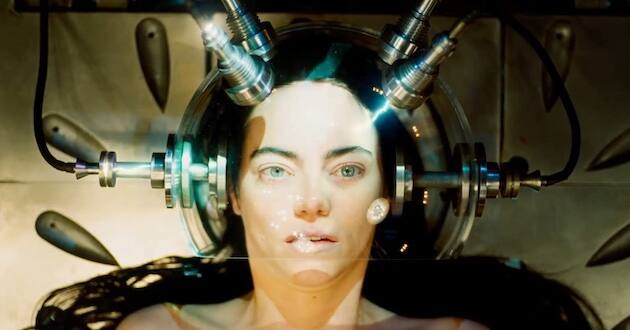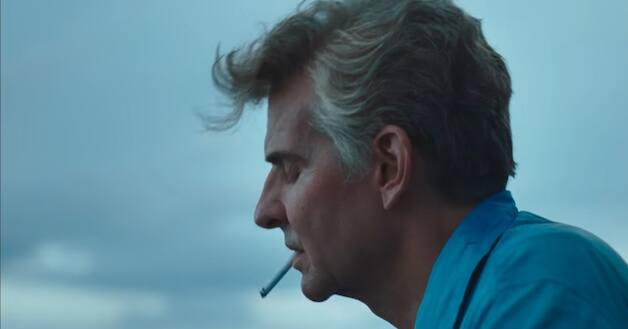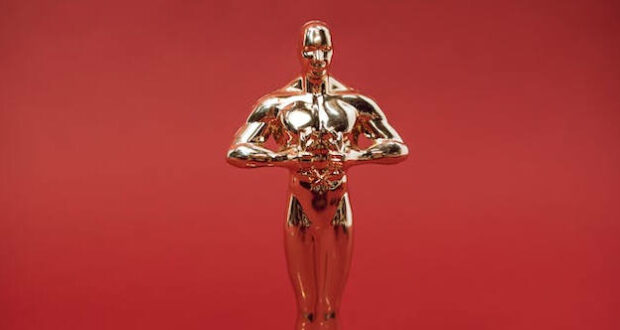This year’s Best Picture nominees at the 2024 Academy Awards showcase how our culture is wrestling with a post-Christian society, whether or not these films feature religion or not. While Hollywood has gained a reputation for being deeply secular — even anti-religious — after Oscar nominees over the past two years featured rather complex portrayals of religion.
Warning: This column contains spoilers.
For example, 2022’s Best Picture nominees prominently portrayed nuanced examples of both the good and bad sides of faith. The list of 2023 Best Picture nominees showed a stark split, with cynical portraits of religion in the real world; positive ones when it came to religions the filmmakers got to invent.
This year, by comparison, there are fewer movies that prominently feature religion. Many don’t at all, like “Oppenheimer,” “Maestro” and “Zone of Interest.” Those that do, treat it largely as a relic of the past (“Past Lives”) or something that needs to be totally re-imagined (“Barbie”).
What’s most fascinating is that these movies, whether they feature religion or not, tell a story of different attempts to answer the question of what kind of world we will have in a post-Christian West. The movies in this year’s Best Picture category — even those that feature no religion at all — tell that story loudly through its absence.
The movies with no religion all largely feature stories of hopelessness, where there is no apparent answer for the problems that plague life. Meanwhile, the most hopeful stories require either faith or an appropriation of it of some kind.
The 2024 Academy Awards ceremony will take place this Sunday at the Dolby Theater in Hollywood.
Rejecting Religion
“Poor Things” is the most explicit story that tells of how our culture has rejected religion. “Poor Things” tells the story of Bella, a woman with a fully-grown body but the mind of a child, who was “created” by scientist Dr. Godwin Baxter, who raises her as his child. She refers to him both as her father and as “my God” and he wields the power of both over her life.

Bella eventually grows up and rejects his authority — and rejecting any authority to tell her what to do and how to live her life. This extends to her fiance, who she demands let her do whatever she wants — including running off with other men whenever she desires — and always being there for her when she gets back. It’s a trend I discussed in my previous piece on “Barbie” and “Poor Things.”
This is, of course, both an intentional but also an apt metaphor for the modern-day rejection of religion. As Dr. Jean Twenge wrote in her book “Generations,” the biggest reason for the growing rejection of religion in society is it is being replaced by the growing belief in self-actualization.
This religion says that anything that gets in the way of doing what makes you feel fulfilled must be rejected, and religion, by its very nature, gives a higher authority and others in your community the right to have a say in your life’s meaning and behavior.
Ignoring religion
Many people abandon religion entirely from their frame of reference. Many of the Best Picture nominees do the same — with depressing results.
“Maestro” is written, directed and stars Bradley Cooper in the biopic of the famous American composer Leonard Bernstein. There is nary a mention of religion in the entire film, save for his Jewish heritage, which is treated largely as a matter of ethnicity. Bernstein is shown to make his music and his work his meaning in life. This, as well as his pursuit of extramarital gay relationships, is shown to destroy his marriage and damage his family — and eventually leads to an early death.

Maestro. Photo: video.
This is eerily reminiscent of the observation by David Foster Wallace, that, when you get rid of religion, you don’t eliminate people’s need to worship something that gives your life meaning, you just find a substitute. This substitute will inevitably eat you alive:
“In the day-to-day trenches of adult life, there is actually no such thing as atheism. There is no such thing as not worshiping. Everybody worships. The only choice we get is what to worship. And an outstanding reason for choosing some sort of God or spiritual-type thing to worship — be it J.C. or Allah, be it Yahweh or the Wiccan mother-goddess or the Four Noble Truths or some infrangible set of ethical principles — is that pretty much anything else you worship will eat you alive.”
“Zone of Interest” and “American Fiction” portray deep social problems in modern society, but offer no solutions to those problems. “Zone of Interest” follows the family of a Nazi officer who is helping run concentration camps. The film juxtaposes him and his loving family life and their concerns about domestic tranquility with their participation in the genocide against the Jews happening right next to them. The film ends with a flash forward to present-day Germany, where everything he has built has led to a Holocaust Memorial.
“American Fiction” follows a writer who pens a stereotypical Black novel to make fun of white publishers and audiences who demand only the most stereotypical material from Black authors, only to be shocked when it becomes a huge hit and he has to keep up the ruse to support himself when expenses mount. Both of these films comment on the problems they portray, but don’t offer any clear hope for a solution.
 “Oppenheimer” follows the titular character J. Robert Oppenheimer, who leads the Manhattan Project to build the first atomic bomb before the Nazis do. The only religion featured in the film is a reference to the Bhagavad Gita, which is merely treated as literature.
“Oppenheimer” follows the titular character J. Robert Oppenheimer, who leads the Manhattan Project to build the first atomic bomb before the Nazis do. The only religion featured in the film is a reference to the Bhagavad Gita, which is merely treated as literature.
The film has a nihilistic picture of humanity and its future, with the ending showing Oppenheimer seeing everything he believed would save humanity eventually harming it. He starts out putting his hope in science, building an atomic bomb to beat the Nazis. He is then overcome by guilt over how many Japanese people his bomb killed — so he puts his hope in politics to control how the bomb is used until his opponents sabotage him. It ends with him predicting that his deadly invention will now destroy the world.
This kind of hopelessness in a world without religion is no surprise. Social science shows that nihilism and depression are pretty consistent byproducts of atheism. Religious people are consistently the most happy and least depressed. The Scientific American even found that the power of religion was so strong that people who regularly went to church (either online or in person) were the only group where their mental health got better during the pandemic, while every other group’s mental health cratered.
One of the most consistent ironies of the modern world is that while almost everything is getting better, from poverty to racism to freedom to child mortality to cures for diseases, people are more likely to be depressed and believe apocalyptic doomsday scenarios that we are going to destroy the world (as I’ve written about previously here, here, and here).
Whether it’s through capitalism, climate change or something else, there’s no shortage of issues that can harm us. A post-religious culture, it seems, leads inevitably to a feeling of hopelessness despite data to the contrary.
Appropriating faith
Not everyone who rejects religion completely abandons it. Many people try to still re-imagine or appropriate religion to get its benefits without embracing it completely. We see this also among the Best Picture nominees.
The movies where the characters can solve and redeem the problems they face are the ones where the characters in some way appropriate the beliefs and values of religion to do so. In “Past Lives,” the two childhood sweethearts comfort themselves with the fact that they know they will never be together by flirting with the Buddhist concept of “inyun” — or a fated relationship that is tied to incarnation, suggesting that they are reincarnated soulmates who might be together again in the next life.
In “Anatomy of a Fall,” when a young boy can’t decide whether his mother is guilty or innocent of his father’s death, a kindly adult suggests to him that he take a leap of faith, and just make a decision about what to believe. This need for even secular people to have faith is something the late Dr. Timothy Keller often talked about.
In “The Holdovers,” religious and non-religious characters alike don’t speak much about God or Christianity, but they have to embrace Christian ideas of compassion and self-sacrifice to overcome their bitterness and pain. And it’s the Christian character who’s able to inspire the most of that redemption in others.
This reflects a trend in the modern day of many thinkers explicitly making the argument that we need Christianity in order to have or maintain the values of Western society that we hold dear — even if they don’t personally believe it. Historian Tom Holland’s book “Dominion” argues that the values of compassion and human dignity we have today in the West are rooted in Christianity.
Author and psychologist Dr. Jordan Peterson told men to go to church saying “who cares what you believe?” Sociologist Ryan Burge is pushing for non-believers to go to church because of the community and meaning it provides, regardless of whether they believe in its doctrines. Podcaster and comedian Joe Rogan has argued that we “need” to believe in Jesus — even though he historically has not.
While many people want to use traditional religious beliefs to support their values, others want to re-imagine religious beliefs altogether. This is where “Barbie” comes in. “Barbie” goes beyond appropriating the “useful” parts of faith, reimagining it to support a modern worldview of feminism and self-actualization rather than patriarchy and oppression like the religion of “Poor Things” did. “Barbie” re-imagines a version of Christianity where God is a woman who helps her undermine the patriarchy and where sin doesn’t involve disobedience to her creator.
This reflects the growth of the religious “nones” in society and the rise in “deconstruction” within Christianity. Nones are those who do not identify with any particular religious group. But it is a mistake to describe these people as non-religious. Rather, as Burge points out, these people believe in God and have a high degree of faith, but simply wish to re-imagine faith the way they see it, without being limited by the agreed-upon truths of tradition or the rest of the community.
Much of the deconstruction involves a turn to a kind of progressive Christianity which, as sociologist George Yancey points out in his book “One Nation No Longer,” largely is defined by making sure theology and social groups conform to upper-class liberal values. Yet, despite the popularity of online figures arguing for Christianity to reinvent itself in a more progressive direction to survive, it’s that branch of Christianity that is losing members fastest.
Restoring religion
Among the Oscar Best Picture nominees, the one that encourages a return from secularism to the Christian faith is “Killers of The Flower Moon,” “Killers of The Flower Moon” follows a plot by evil patriarch William Hale and his nephew Ernest Burkhart to steal the fortune of a series of Osage Native American women by marrying into their family and killing them.
“Killers of The Flower Moon” follows a plot by evil patriarch William Hale and his nephew Ernest Burkhart to steal the fortune of a series of Osage Native American women by marrying into their family and killing them.
Throughout the movie, the faith of the Osage people is ever-present. Hale, by contrast, speaks the language of faith, but tells his nephew, “Are you waiting for God to save them? He doesn’t do that anymore.”
But as he says that, the FBI — portrayed here as the agents of God — come and take them down. For Hale, God is something society has moved on from. But the movie shows God active in doing justice for those who still believe in Him. He even offers — through the FBI — a way out for sinners like Ernest. Whether or not they take him up on it is another matter.
Of the different options for the post-Christian future that the Best Picture nominees chronicle, the return to faith is the one that offers the most hope. And yet, it also seems the one that the fewest people are turning to, as the ranks of the religious shrink and age, and the ranks of the non-religious grow.
But there are still some who are. As “The Great Dechurching” points out, nondenominational American churches and Pentecostal “Assemblies of God” churches are growing. Ayaan Hirsi Ali was a Muslim who became an atheist and just recently became a Christian, citing many of the same arguments Holland used for how many of our values come from Christianity.
Where to next?
Movies shape and follow cultural trends. Therefore it’s no surprise that as society becomes more polarized between secular and religious, movies would reflect that polarization.
On the one hand, you see movies that are totally secular and films that are deeply religious — whether or not they are trying to restore or reimagine faith and belief.
What’s most interesting is how all the purely secular movies reflect a distinct hopelessness against the evils of this world.
The hopeful movies are the ones that either appropriate or restore the faith that we are losing.
What will the future bring? Will nihilism win? Or will some version of faith grow?
Hopefully, it’s the latter. If the 2024 Best Picture nominees are any indication, we need it to.
–Joseph Holmes is an award-nominated filmmaker and culture critic living in New York City. He is co-host of the podcast “The Overthinkers” and its companion website theoverthinkersjournal.world, where he discusses art, culture and faith with his fellow overthinkers. His other work and contact info can be found at his website josephholmesstudios.com. Reprinted from ReligionUnplugged with permission.
 Metro Voice News Celebrating Faith, Family & Community
Metro Voice News Celebrating Faith, Family & Community










